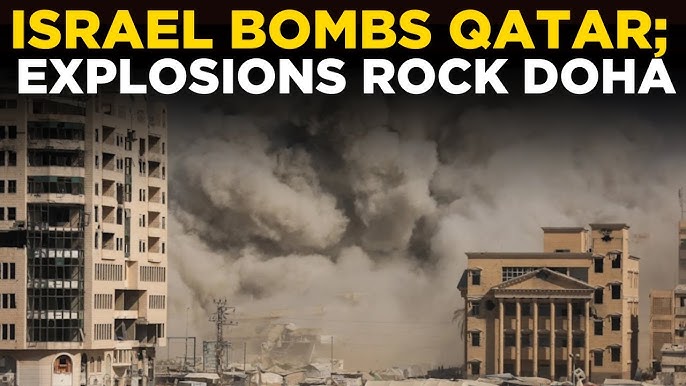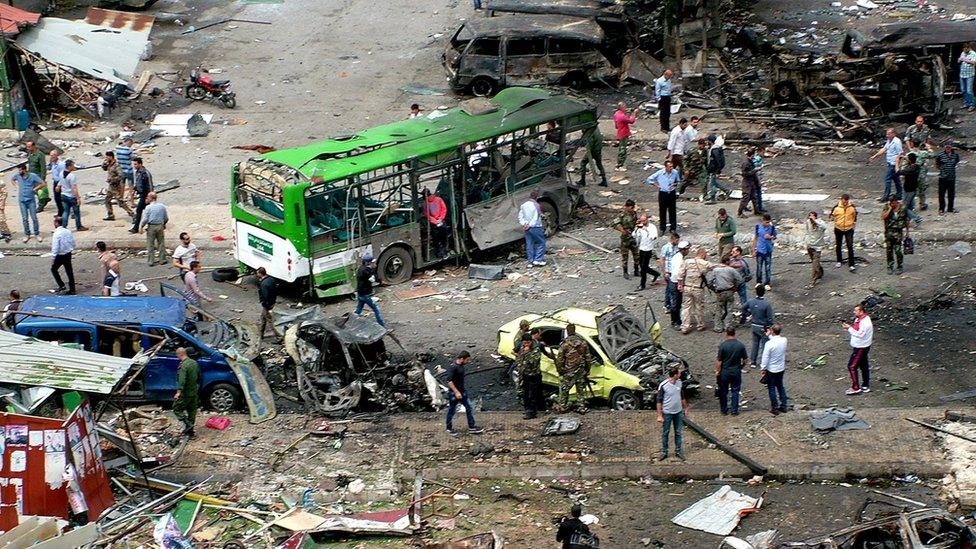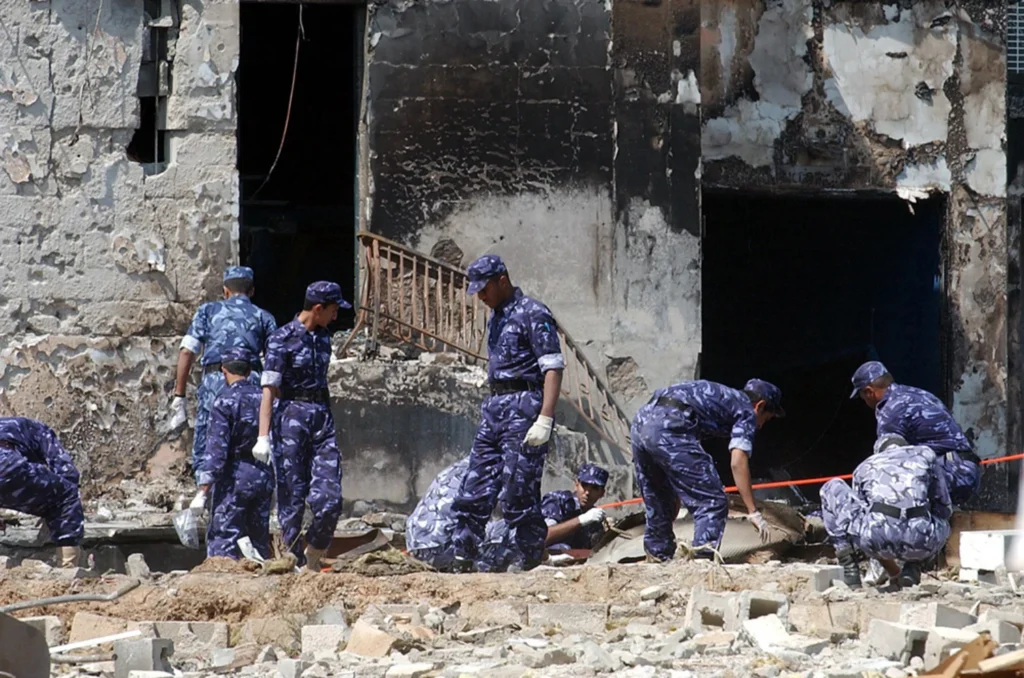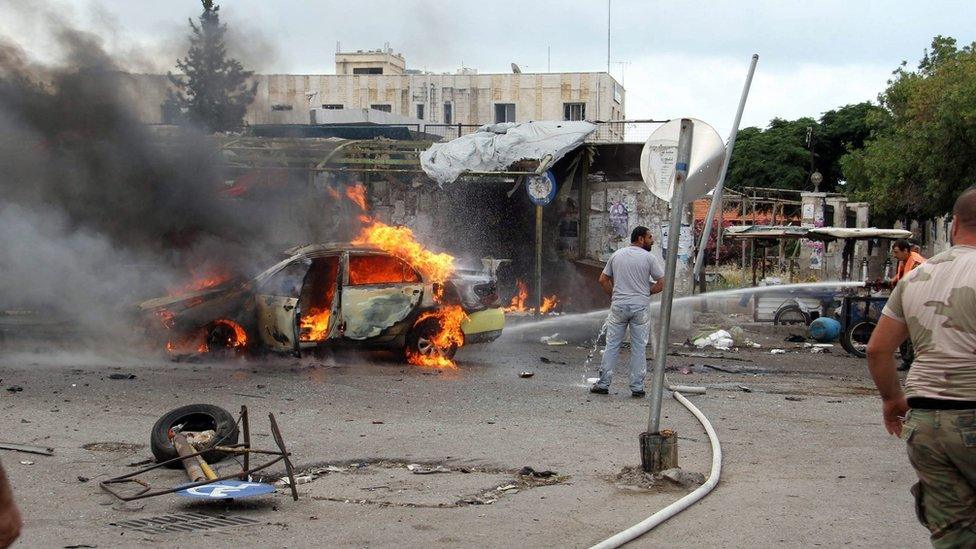“The Qatar bombing wasn’t just a tragedy for one nation—it became a global wake-up call.”
When news of the Qatar bombing broke, it didn’t just make headlines—it broke hearts. In a place known for its rising influence, rapid growth, and global ties, the sudden burst of violence felt almost unreal. Families were torn apart, everyday life was shaken, and a sense of vulnerability spread far beyond Qatar’s borders.But this wasn’t just about one tragic event—it was about the ripple effect it created across the world. Governments reacted, security experts debated, and ordinary people everywhere were left wondering what such an attack means for the future of peace and stability.

In this blog, we’ll break down what happened, the deadly impact it left behind, and how the world responded to this shocking moment in Qatar’s history.
What Happened in the Qatar Bombing?
The Qatar bombing was one of those moments that started like any other ordinary day—but ended in chaos that no one could have imagined. In just a matter of seconds, a loud explosion shattered the calm, leaving people running for safety and families desperately searching for their loved ones.
Eyewitnesses described the scene as heartbreaking—smoke filling the air, sirens blaring, and a wave of confusion and fear spreading across the streets. For those who were there, it wasn’t just a headline on the news—it was a life-changing event they will never forget.
While details unfolded quickly in the media, the reality on the ground was far more personal: lives lost, injuries that changed people forever, and an entire community left to pick up the pieces. What began as a tragic act of violence soon became a story the world couldn’t ignore.
The Deadly Impact on Qatar
The bombing didn’t just scar buildings—it scarred lives. Families lost loved ones in an instant, leaving behind empty chairs at dinner tables and memories that now carry a painful weight. For many, the tragedy wasn’t just something they saw on TV—it was a personal wound that will never truly heal.

Beyond the human loss, the attack shook Qatar’s sense of safety. A nation known for its rapid growth, world-class events, and global influence suddenly felt fragile. Businesses closed, communities were disrupted, and everyday life was overshadowed by grief and fear. The economic impact was also undeniable. Tourism slowed, public spaces grew quieter, and questions about security hung in the air. Yet, amidst the devastation, there was also resilience. Ordinary citizens came together—helping the injured, comforting the grieving, and proving that even in the darkest times, unity can shine through.
The deadly impact wasn’t just measured in numbers. It was measured in broken hearts, shaken confidence, and the long road Qatar faced to rebuild not just its infrastructure, but its sense of peace.
Global Reactions to the Qatar Bombing
The shock of the Qatar bombing didn’t stop at its borders—it echoed across the globe. Within hours, international headlines were filled with updates, and leaders from around the world expressed their sorrow and solidarity. The global reaction to the Qatar bombing was immediate, heartfelt, and powerful.
World leaders on the Qatar bombing spoke with a mix of grief and urgency. Some condemned the act as a “cowardly attack on humanity,” while others emphasized the need for stronger global cooperation to fight terrorism. Messages of support poured in—from allies in the Middle East to voices in Europe, Asia, and the United States—all standing with Qatar in its moment of pain.
But it wasn’t just political leaders who responded. Ordinary people across continents took to social media to share prayers, condolences, and calls for peace. Hashtags trended, candles were lit in solidarity, and people who had never set foot in Qatar suddenly felt connected to its tragedy.
This global response showed that even in a divided world, tragedy has the power to unite. The bombing was a grim reminder that violence in one corner of the globe can touch hearts everywhere—and that the fight for peace is a shared responsibility.
Security Concerns and Lessons Learned
The Qatar bombing didn’t just leave behind physical destruction—it left behind tough questions about safety and security. For many, the attack raised a chilling thought: if it could happen here, could it happen anywhere?
In the immediate aftermath, authorities tightened security, checked vulnerabilities, and reassured citizens that stronger measures were on the way. But beyond the government response, everyday people also felt the shift—suddenly, crowded places didn’t feel as safe, and trust in daily routines was shaken.

The lessons learned from the Qatar bombing go deeper than just upgrading security systems or increasing surveillance. They highlight the need for stronger intelligence sharing between nations, more community awareness, and resilience against fear. It’s a reminder that safety isn’t just about walls, cameras, or checkpoints—it’s about people standing together, refusing to let violence define their future.
While the tragedy exposed painful weaknesses, it also sparked important conversations. How can nations protect without isolating? How can communities stay open and welcoming while remaining vigilant? These are lessons Qatar—and the world—must continue to carry forward.
Public Opinion and Social Media Response
When news of the Qatar bombing broke, the world didn’t just follow it through television screens—millions turned to social media to share their voices. Hashtags spread rapidly, becoming a digital gathering place for grief, solidarity, and outrage.
People from different corners of the world, many with no direct ties to Qatar, posted messages of support: prayers for the victims, words of comfort for families, and calls for peace in the region. Others expressed anger and frustration, demanding stronger action against those behind such violence. The public opinion was clear—this was not just an attack on Qatar, but on humanity itself.

In times of tragedy, social media often becomes a reflection of our shared emotions, and this was no exception. The social media response showed how deeply connected people are today—how a single event can touch hearts across continents within minutes. While the pain was real, so too was the compassion, proving that even in moments of darkness, people can unite through their screens to stand together.
Conclusion: Why This Event Matters Today
The Qatar bombing was more than a single tragic day—it became a reminder of how fragile peace can be and how quickly lives can change. For Qatar, it was a heartbreaking moment that tested its strength, unity, and resilience. For the world, it was a wake-up call about the shared challenges of security in an increasingly connected era.
This event matters today because it shows us that no nation stands alone. A tragedy in one country can spark conversations, concerns, and solidarity across the globe. It reminds us that global security is not just a political issue—it’s a human one, touching families, communities, and ordinary lives everywhere.
Yet, even in the face of such devastation, there is hope. The unity seen in Qatar and the support from around the world prove that compassion can outshine violence. If there’s one lesson to carry forward, it’s that resilience and solidarity are stronger than fear.
The Qatar bombing left scars, but it also left a message: when the world stands together, even the darkest moments can lead to a brighter path toward peace.
FAQs
1. What exactly happened in the Qatar bombing?
The Qatar bombing was a tragic event where a sudden explosion shook parts of the country, leading to loss of lives, injuries, and widespread fear. While news headlines captured the scale, for many families it was a deeply personal tragedy that changed their lives forever.
2. How did the Qatar bombing impact people on the ground?
Beyond the numbers and reports, the bombing left families grieving loved ones, communities in shock, and a nation questioning its sense of safety. It wasn’t just buildings that were damaged—it was trust, security, and peace of mind.
3. What was the global reaction to the Qatar bombing?
The global reaction to the Qatar bombing was powerful. World leaders condemned the attack and offered support, while people worldwide took to social media to share prayers, solidarity, and calls for peace. It showed that tragedy in one place can touch hearts everywhere.
4. What lessons were learned from the Qatar bombing?
The event highlighted the importance of stronger security measures, international cooperation, and community resilience. But perhaps the biggest lesson was that unity—both local and global—remains the strongest defense against fear and violence.
5. Why does this event still matter today?
The Qatar bombing matters because it reminds us of the fragility of peace and the shared responsibility we all have in protecting it. It’s not just about politics or borders—it’s about real people, real families, and the need for a safer, more compassionate world.
For a deeper dive into the shocking details and hidden revelations, don’t miss our comprehensive coverage in Unveiling Jeffrey Epstein Files: The Dark Truth Behind the Case